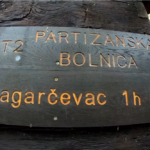Just how close are we to a real digital Croatia? The answer is unclear and as varied as ever, but some Croatian cities have shown promise with some rather impressive and encouraging results.
As Novac/Gradonacelnik.hr writes on the 23rd of April, 2019, although more and more cities are gradually digitising their business and investing in smart city solutions, and some of the most advanced have almost completely switched to doing solely digital business, generally speaking, Croatian cities are only in the very early stages of the much needed digital transition, just as Croatia is, as a country, at the very bottom in Europe in terms of the digital readiness of general society and the economy.
As the methodology for ranking cities in terms of digital readiness is only at its very beginning even at the European level, stories and analysis of the “smart city” concept development here in Croatia are still very much based on individual experiences, examples and projects.
That is why, in order to gain a real elementary insight into the digitalisation of Croatia’s services and the communication of the country’s many city administrations with citizens, experts from Apsolon, a consulting company specialising in digital business development, has undertaken the very first major study of the ”digital readiness” of twenty of the largest cities across Croatia. This study, according to project manager and smart management director at Apsolon, Ivana Novoselec, is the basis for the further development of research tools and methodology that will track the development and progress of Croatia’s cities on an annual basis.
In its study, Apsolon divided the cities into three categories – large (Zagreb, Split, Rijeka, Osijek), middle (Zadar, Velika Gorica, Slavonski Brod, Pula and Karlovac) and smaller cities (Sisak, Varaždin, Šibenik, Dubrovnik, Bjelovar, Kaštela, Samobor, Vinkovci, Koprivnica, Đakovo, Vukovar.)
The digital readiness index at Apsolon was set based on several criteria – the availability of e-services (the number of administrative services and their digitalisation rate in Croatia), the availability of site service information and the development of unified services for making payments in the city, then came the availability of city data, the level of citizen participation in decision making and communication channels between the city administration and citizens, ie, the availability of data and time in which citizens receive answers to their various questions. At this stage, Apsolon hasn’t entered into the internal processes in Croatia’s city administrations, but rather focused on what services are offered to the city’s citizens and how long such things typically take.
After this type of indexing and ranking, the title of the ”digitisation champion” among the Croatian cities was awarded to the City of Rijeka, thus confirming its status as the best city in the Smart City category which it won last year. Apsolon pointed out that the City of Rijeka has achieved the greatest advances in the systematic raising of the quality of its services, but also the opening of data and communication channels to citizens.
“Rijeka as the most advanced city in Croatia in terms of digitisation and is characterised in particular by the emphasis on openness and communication with its citizens. Its administration is oriented towards clear communication (a very clear centralised e-services approach with well-organised access to all automated services and available forms), openness and participatory management,” said project manager Ivana Novoselac.
In many categories, especially those relating to the functional aspects of digitisation (advanced digital services, e-citizen connectivity, etc.), Rijeka is followed closely by the City of Zagreb.
The city of Pula is the most advanced middle-size city in Croatia, which also presents its services and available information to its citizens in a systematic and very detailed way, raising standards in terms of transparency and interaction with citizens, and is certainly a champion among cities with between 50.000 and 100.000 inhabitants.
In relation to the criteria relating to specific functional and technological solutions, Karlovac, Velika Gorica and Zadar follow. For the City of Karlovac the large number of available administrative procedures on its website and responses to citizens’ inquiries are generally quick made it stand out from the crowd.
Among the small cities in Croatia, there is no distinctly dominant digital champion, but according to research findings in different aspects of digitisation, Dubrovnik, Samobor, Sisak, Koprivnica and Varaždin appear to be the most successful ones, according to this research. Among the prominent representatives of this category, Dubrovnik is strategically trying to profile as Smart City and has a high quality City Card, e-Visitor platform, is very active on social networks and it continuing to develop innovative application solutions. When it comes to the number of digitally available services, Koprivnica ranks above all.
Samobor, which is particularly active on social networks and is the category winner for social networking, has a very comprehensive and interactive website which separates the site accordingly and has adjusted all of the information for citizens and for visitors, as well as separating foreign visitors from domestic ones.
It should also be noted that Bjelovar is extremely proactive in the field of the digitalisation of its administration, it is working on applicative transparency solutions as well as on internal digitalisation processes. What is particularly commendable is Bjelovar’s focus on the digitalisation of its internal processes.
Make sure to follow our dedciated lifestyle page for much more.
Click here for the original article by Novac/Jutarnji/Gradonacelnik.hr









